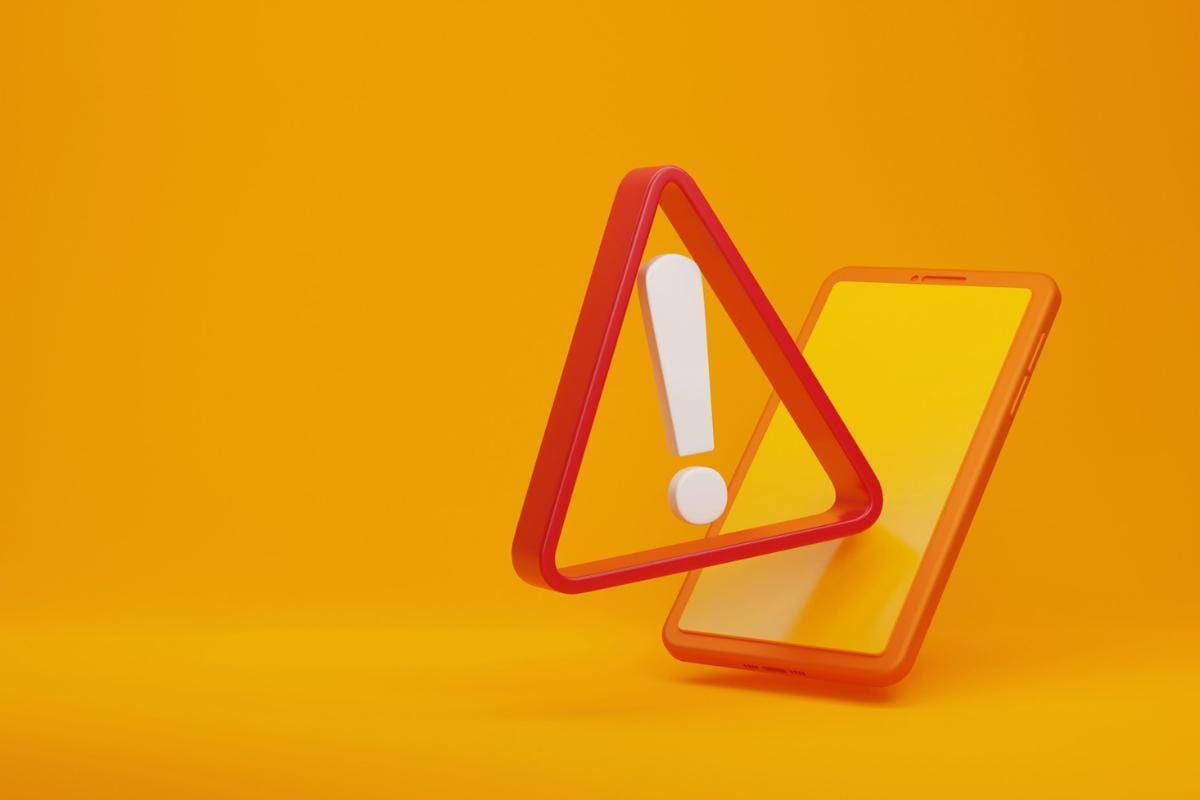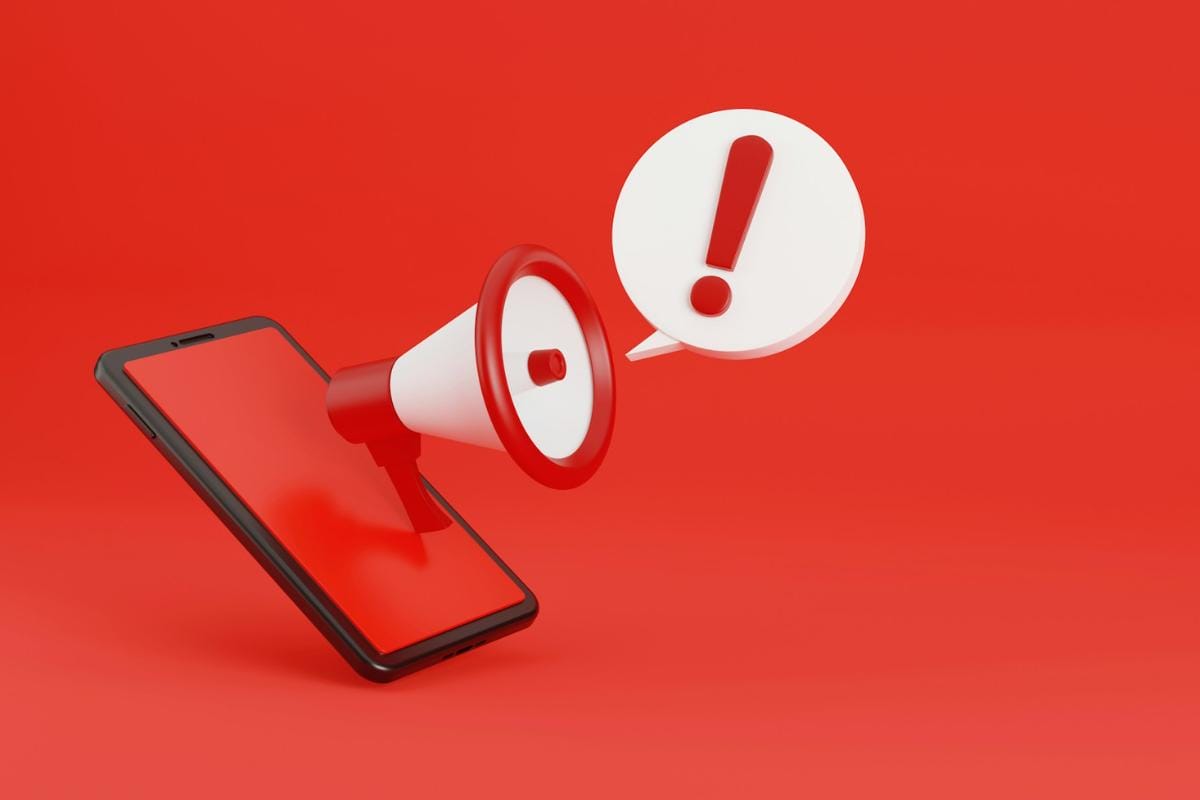Searches for “is this number a scam” surged by 100% in the UK over the past month. According to the Q4 2024 Global Call Threat Report, UK residents received an average of four spam calls per month, with the share of unknown spam calls rising from 28% to 32%. This all contributed to an estimated £1.17 billion lost to fraud last year alone.
With spam and scam calls showing no signs of slowing and October marking Cybersecurity Awareness Month, the mobiles experts at Uswitch have analysed the state of phone fraud in the UK, and shared their advice on keeping your phone safe from scammers.
Key findings
- London numbers are 184% riskier than Manchester’s, with the capital’s area code amassing over 217 million spam phone lookups
- About 37,660 unsolicited scam and spam calls hit UK mobiles in the first half of 2025
- Adult content tops the list of unsolicited scam and spam calls in the UK, followed by energy-saving and home improvement offers
- Around one in five UK fraud victims feel ashamed, embarrassed or blame themselves for the incident
- Archie Burkinshaw, expert at Uswitch Mobiles, gives tips on keeping your phones safe following the launch of the iPhone 17.
Table 1: The UK cities with the most unknown calls
| Rank | City | Country | Area Code | Total Phone Lookups | % of Total Phone Lookups |
| 1 | London | England | 020 | 217,689,977 | 26.21% |
| 2 | Manchester | England | 161 | 76,604,224 | 9.22% |
| 3 | Birmingham | England | 121 | 28,062,454 | 3.38% |
| 4 | Glasgow | Scotland | 141 | 24,177,309 | 2.91% |
| 5 | Leeds | England | 113 | 20,488,992 | 2.47% |
| 6 | Liverpool | England | 151 | 19,691,240 | 2.37% |
| 7 | Edinburgh | Scotland | 131 | 12,574,556 | 1.51% |
| 8 | Sheffield | England | 114 | 12,015,766 | 1.45% |
| 9 | Leicester | England | 116 | 10,544,169 | 1.27% |
| 10 | Bristol | England | 117 | 10,005,610 | 1.20% |
For the complete data, please click here.
London takes the top spot as the UK’s cold call capital, with over 217 million phone lookups for numbers starting with the 020 area code – that’s a staggering 26% of all nuisance and unknown phone searches nationwide. In fact, calls from London are 184% more likely to be spam than those from Manchester, which takes second place.
There have been over 76 million phone lookups for numbers from a Manchester area code, accounting for 9.2% of the UK’s total nuisance call reports. Birmingham is in third, with over 28 million searches for unknown or suspicious numbers linked to its area code, representing almost 3.4% of all unsolicited phone calls.
Despite its smaller population compared to England’s major cities, Glasgow ranks fourth with 24.1 million phone lookups – almost double Edinburgh‘s 12.5 million.
Leeds completes the top five with over 20 million phone lookups for suspicious or unknown calls, making up 2.5% of the UK total.
Table 2: The most common types of unsolicited contact in 2025
| Rank | Topic | Occurrences (January – June 2025) | % of nuisance calls |
| 1 | Adult content | 5,242 | 13.9% |
| 2 | Energy saving and home improvements | 3,488 | 9.3% |
| 3 | Recruitment | 2,628 | 7.0% |
| 4 | Banking | 2,141 | 5.7% |
| 5 | Broadband and Telecoms | 2,006 | 5.3% |
| 6 | Retail | 1,869 | 5.0% |
| 7 | Gambling | 1,451 | 3.9% |
| 8 | Energy supply | 1,293 | 3.4% |
| 9 | Investments, Cryptocurrency or Online Trading | 1,041 | 2.8% |
| 10 | Insurance | 856 | 2.3% |
Adult content tops the list of unsolicited digital contact in 2025, accounting for 13.9% of all nuisance calls, with 5,242 reports. That’s nearly 4,000 more than gambling-related messages, which ranked seventh with 1,451 reports.
Spam and scam calls related to energy-saving and home improvement are the second most common, with 3,488 reports of unsolicited contact. This equates to almost 10% of all nuisance mobile messaging.
Recruitment calls take third place, making up 7.0% of all scam and nuisance calls, with 2,628 reports. Other high-risk categories include banking (2,141 reports) and investment, cryptocurrency, and online trading scams (1,041 reports), ranking fourth and ninth respectively.
Table 3: The hidden toll of cyber fraud
| Impact on victims of incidents of cyber fraud | Apr 2018 to Mar 2019 (%) | Apr 2019 to Mar 2020 (%) | Apr 2022 to Mar 2023 (%) | Apr 2023 to Mar 2024 (%) |
| Loss of time/inconvenience | 24 | 31 | 25 | 24 |
| Financial loss | 33 | 31 | 33 | 34 |
| Felt ashamed/embarrassed/self-blame | 11 | 12 | 17 | 21 |
| Stopped using specific internet sites | 13 | 13 | 14 | 13 |
| Health problems | 1 | 3 | 1 | 2 |
Victims of cyber fraud between April 2018 and March 2024 show a common trend, with financial loss and wasted time being the most frequent consequences. Around a quarter of victims experienced lost time or inconvenience, while financial losses affected roughly one-third of those targeted. The psychological toll has also grown over time, with feelings of shame, embarrassment or self-blame among victims rising from 11% in 2018/19 to 21% in 2023/24.
How secure is the new iPhone 17?
Apple’s latest iPhone range comes with upgraded memory security to help protect users from advanced spyware and surveillance attacks. At the core of this upgrade is Memory Integrity Enforcement (MIE), a technology built to prevent memory corruption bugs – one of the most common vulnerabilities exploited by spyware developers.
By closing off this avenue of attack, MIE could make the iPhone 17 one of the most secure devices on the market, strengthening consumer protection and raising the bar for surveillance firms and exploit vendors seeking to compromise iPhones.
Archie Burkinshaw, mobiles expert at Uswitch, gives insight on avoiding spam and scams following the launch of the iPhone 17:
“There are endless ways by which scammers can get their hands on phone numbers. Scraping social media, stolen data from data breaches, or even simply answering a spam call confirming an active number are all enough to get you on a scam list.
“To help limit the means by which scammers can get their hands on your number, there are some steps you can take. Firstly, it is advised to register your number with the free Telephone Preference Service (TPS). This service adds your number to the UK’s official “Do Not Call” register, forcing organisations to stop calling you for sales and marketing purposes.
“However, it is key to note that it does not stop scam, nuisance calls, or calls from organisations that you may have given separate consent to contact. If you bought the new iPhone this September and are getting a new number, be sure to do this on day one. TPS is tied to your phone number, not the device, so if you’re keeping your existing number, you won’t need to do anything – it will transfer over.
“Deepfake scam calls have been prevalent and have been costing victims thousands, so it is key to be aware of the warning signs. One of the most common tactics fraudsters use in deepfake calls is disguising themselves as a loved one who may be in urgent need of financial help.
“Always take caution if you receive a call or text which seems out of the blue, and has an urgent call to action. You should call your loved ones yourself to check if you are unsure, and ask specific questions only they would know the answer to, in order to ensure it’s really them.
“If you find yourself inundated with spam messaging and calls, it is worth using your phone’s built-in call blocking features or third-party apps such as TrueCaller or Hiya to filter spam. Be sure to report spam or malicious calls to the Information Commissioner’s Office (ICO) by forwarding scam texts to 7726 or reporting these online, to help them take action against illegal callers.”















